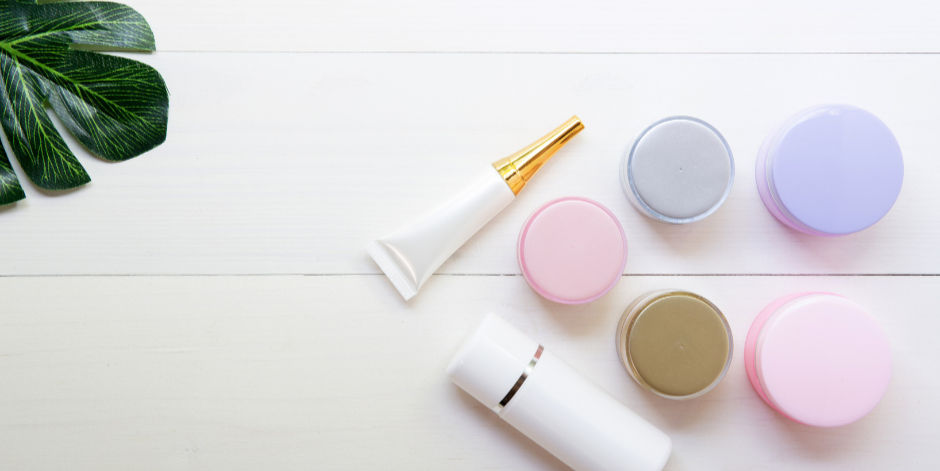What We Know from Retinol Clinical Trials
- Ben Brockman
- Sep 19, 2025
- 4 min read
Retinol is one of the most well-researched and widely used ingredients in modern skincare. From reducing wrinkles to supporting cell turnover, its reputation as a powerhouse anti-aging compound is backed by growing clinical evidence. But what exactly do retinol clinical trials reveal, and how can brands tap into this research to create validated product claims?

In this article, we’ll explore the clinical trial landscape for retinol, key findings from recent studies, the difference between topical and supplement forms, and how skincare brands can design their own clinical trials to back up claims with science.
Clinical Trials Confirm Retinol’s Anti-Aging Benefits
Retinol, a derivative of Vitamin A, has long been associated with visible improvements in skin health. Skincare clinical trials on retinol have consistently shown its ability to:
Increase epidermal thickness
Improve collagen production (types I and III)
Reduce the appearance of fine lines and wrinkles
Improve skin texture and tone
Many of these results have been observed through both noninvasive imaging techniques and skin biopsies, giving us a detailed understanding of how retinol transforms the skin at a cellular level.
In fact, the anti-aging effects of retinol were first documented as early as 1995, when researchers found that retinol thickens the skin and enhances protein expression, both key factors in combating signs of aging.
Retinol vs. Retinoic Acid: What's the Difference?
While retinol is commonly used in over-the-counter skincare products, another form of Vitamin A called retinoic acid (tretinoin) is often used in prescription-strength formulations. Clinical trials comparing these two compounds have shown that:
Both are effective in reducing photoaging (wrinkles and sun damage caused by UV exposure).
Retinoic acid often produces faster and more pronounced results.
However, retinoic acid is also more irritating and less suitable for sensitive skin.
This has led dermatologists and product developers to favor encapsulated or low-dose retinol formulations, which offer similar benefits with fewer side effects.
The Role of Retinol in Preventing Photoaging
Retinol is particularly effective against photoaging, which refers to skin damage caused by cumulative sun exposure. Clinical trials suggest that retinol can:
Protect against UV-induced collagen breakdown
Improve pigmentation irregularities
Support smoother skin texture
It’s important to distinguish this from intrinsic or chronological aging, which occurs naturally over time and may not be significantly impacted by topical retinoids.
A recent literature review of retinol clinical trials highlighted tretinoin as one of the most promising agents against photoaging, though newer alternatives like adapalene are gaining popularity due to better tolerability.
What About Retinol Supplements?
Retinol isn’t just applied topically, it’s also available as a dietary supplement in the form of Vitamin A. These supplements may:
Support skin health from the inside out
Help maintain the health of mucous membranes (e.g., nasal passages)
Boost immune function
Improve vision in low light
Vitamin A supplements come in two forms:
Retinoids (from animal sources like eggs, oily fish, and liver)
Beta-carotenes (from plant sources like sweet potatoes, carrots, and leafy greens)
While more research is needed to directly compare topical and oral retinol in clinical trials, the systemic benefits of Vitamin A make it a valuable addition to holistic skincare routines.
Case Study: Retinol Clinical Trial with Common Heir
At Citruslabs, we recently partnered with Common Heir, a clean skincare brand, to assess their encapsulated retinol product in a clinical trial setting. The results?
Significant improvement in skin smoothness
Visible reduction in fine lines and wrinkles
High tolerability and positive user feedback
Because the trial was designed to meet clinical research standards, Common Heir is now able to legally and ethically use science-backed health claims in their marketing.
This is a prime example of how retinol clinical trials not only validate product efficacy but also give brands a powerful marketing edge in an increasingly competitive industry.
Side Effects and Usage Tips
Despite its many benefits, retinol isn’t without drawbacks. Common side effects observed in clinical trials include:
Dryness
Irritation
Increased sun sensitivity
To mitigate these effects, dermatologists often recommend:
Starting with lower concentrations of retinol
Pairing it with a gentle moisturizer
Wearing daily SPF, as retinol can make the skin more prone to sun damage
With consistent use and proper care, most users see improvements within 4 to 12 weeks.
How Skincare Brands Can Start Their Own Retinol Clinical Trials
If your brand is launching a new retinol product, whether it's a serum, cream, or supplement, clinical trials can transform your marketing. At Citruslabs, we make it simple and affordable to conduct rigorous, IRB-approved studies tailored to your goals.
Our services include:
Study design and protocol creation
Recruitment and participant management
Data collection and analysis
Claim creation and report writing
Best of all, we work within your budget and timeline, ensuring you can generate research-backed product claims without breaking the bank.
Want to launch your own retinol clinical trial? Contact us today to get started.
Retinol Research That Sells
Retinol clinical trials have played a key role in confirming what many skincare users already know: retinol works. Whether applied topically or taken as a supplement, this Vitamin A derivative has been shown to reduce signs of aging, improve skin health, and support cell renewal.
For skincare brands, clinical research isn’t just a nice-to-have, it’s essential for building consumer trust and standing out in a crowded marketplace. If you're looking to add credibility to your product and market with confidence, now is the time to invest in clinical validation.



